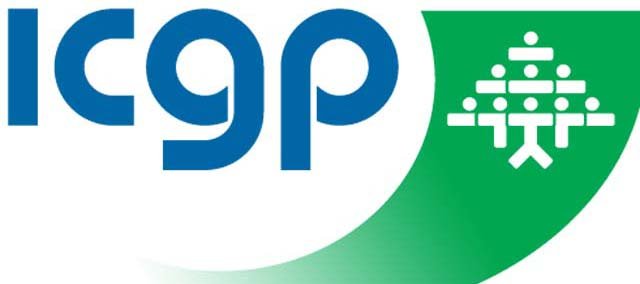ICGP CEO Mr Fintan Foy believes the College’s activity in Saudi Arabia is a positive development for family medicine but concedes that feedback from members has been mixed. Catherine Reilly reports
The ICGP has been “very upfront” about its work in Saudi Arabia but may assess how information about such projects is distilled to the wider membership, College CEO Mr Fintan Foy has told the Medical Independent (MI).
In November, MI reported that the ICGP was working with a Saudi state body to establish “family medicine training academies” in the Kingdom. The development surprised many ICGP members and some voiced concerns on social media around Saudi Arabia’s extremely poor human rights record and the appropriateness of the College’s involvement.
Amnesty International’s report on Saudi Arabia for 2017/18 referred to severe restrictions on freedoms of expression, association and assembly. Despite limited reforms, “women faced systemic discrimination in law and practice and were inadequately protected against sexual and other violence”. It added: “The authorities used the death penalty extensively, carrying out scores of executions. The Saudi-led coalition continued to commit serious violations of international law in Yemen.”
Mr Foy said there were “no secrets” in respect of the College’s work in the Kingdom. The CEO noted that he had confirmed to MI in 2017 that Saudi Arabia was an option in respect of plans to develop income streams in Gulf and Asian countries.
The College was active in Saudi Arabia, Qatar, United Arab Emirates and Malaysia, according to Mr Foy.
“They are the four countries we are involved with at the moment. All to do with GP training, curriculum development, competency-based assessments, education developments and things like that. All educational and GP-related,” commented Mr Foy.
“We are very up-front about what we are doing, but maybe the distillation of information from Council, not just in this context but in other contexts as well — we need to look at that.” He also confirmed that the College board had approved the activity in Saudi Arabia. “The board would have been updated on the project from day one. We wouldn’t be involved in anything unless it had board approval… Before we do anything, the board has to sanction same, so that doesn’t only apply to overseas projects, it applies to everything.”
Mr Foy said the College has been working with the Saudi Commission for Health Specialties in regard to developing family medicine training. In October, two family medicine academy pilot sites were established in Riyadh. There are approximately 25 trainees at each site and plans to establish a third site in Dammam.
“Our role at the moment is in ensuring the standards and delivery of a curriculum and trainee assessments, etc, are being maintained in the two pilot sites in Riyadh. Then it is hoped the third site in Dammam will start in September 2019.”
Mr Foy said that “the quality and the standard of training that we have here would be applied in any other country we are working in, including Saudi Arabia”. He said “we would apply the norms we apply here”.
Many of the trainees and trainers in Saudi Arabia are female, according to Mr Foy. “We would have had a number of female trainers who would have travelled out to the Kingdom in the last year, to assist in the delivery of training and training the trainers and so on,” he added. “So there are absolutely no restrictions and if there were restrictions, we wouldn’t do it.
“The changes that are taking place in Saudi society, particularly in the past three years, are enormous and are for the better. But the policies we would apply here we would insist on applying there as well.”
In a recent article in the College’s Forum magazine on the Saudi training initiative, ICGP Medical Director Dr Tony Cox wrote that female family medicine trainees outnumbered males “and have equal opportunities for career progression in family medicine”. He stated that, through the training reforms, the stature and reputation of family medicine in Saudi Arabia was being enhanced. To date, hospital-based medicine had been the “traditional and trusted model of care with family medicine the poor relation”.
However, the College CEO admitted there had been mixed feedback from members on its activity in Saudi Arabia. “Some positive and some negative. It is like everything; some people would think it’s a good thing, and others would think it is not such a good thing, but that is not just to do with Saudi Arabia, that would apply to a lot of activities.”
Mr Foy was not aware whether any motions on the matter would be debated at the upcoming AGM.
“It will be in my report to Council and it is in the annual report as well as to what activities we are involved in nationally and internationally and if there are any questions from the floor, absolutely, I’d be very happy to deal with those.”
Asked if the growth of overseas activity was an indication of precarious finances in Irish postgraduate medical training colleges, Mr Foy said: “No. I think Irish medical education is highly thought of, much sought-after, it’s something we do very, very well, and I think there is huge respect in certain countries for the type of medical education we have here. And there is a demand. It is nice to be able to meet that demand.
“From our point of view, I think it really is pushing the whole ethos and principles behind family medicine, whereas in Saudi Arabia, there was very little there before we were invited in… Because of the reputation of the College, they have had a huge demand for trainees coming onto the programme and I think that’s nice. It would be great that there would be a philosophy of an expansion of family medicine across the world and it is nice we are part of that push.”












Leave a Reply
You must be logged in to post a comment.